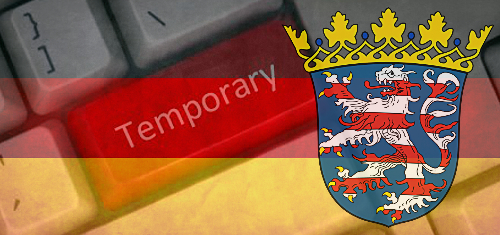 The German state of Hesse has announced it will issue temporary online sports betting permits to operators until the country’s tangled regulatory regime gets straightened out in the courts.
The German state of Hesse has announced it will issue temporary online sports betting permits to operators until the country’s tangled regulatory regime gets straightened out in the courts.
This week, the Hessian Ministry of the Interior announced it would allow betting operators to apply for Duldungsverfügungen aka “temporary toleration dispositions” that would permit operators to offer both land-based and online betting. Operators have been given a 60-day window starting September 15 in which to apply for the permits.
However, the permits would only be valid in the state of Hesse, meaning operators would still be on legally unsure turf if they accept wagers from punters located in the other 15 German lander (states), a limitation that will likely discourage most operators from seeking out the Hessian permits.
The Hessian government says the temporary workaround is necessary following the October 2015 ruling by the Hessian Administrative Court that prevented the formal issuing of the 20 nationwide sports betting licenses announced in September 2014.
Those 20 licenses were issued after Germany adopted its federal interstate treaty on sports betting in 2012, but that regime has been routinely shot down by both German and European Union courts as unlawful, given its arbitrary restrictions on the number of available licenses and controversies over the botched application vetting.
The years of legal stalemate have convinced many online operators to simply carry on serving the German market, while taking care to ante up an appropriate level of taxes to the German government as a good faith gesture.
In August, a German court dealt another blow to Germany’s gambling laws by overturning a District Court of Munich ruling that allowed the authorities to take legal action against punters who dared wager with unauthorized betting sites.
That case involved a 25-year-old decorator who withdrew over €200k in winnings from an unidentified Gibraltar-based casino site. As with other court rulings, the higher court ruled that the punter was in the clear because the laws currently on the books have been deemed legally unenforceable.